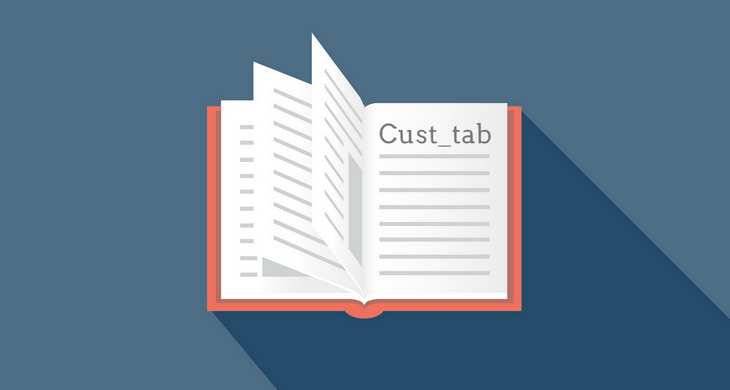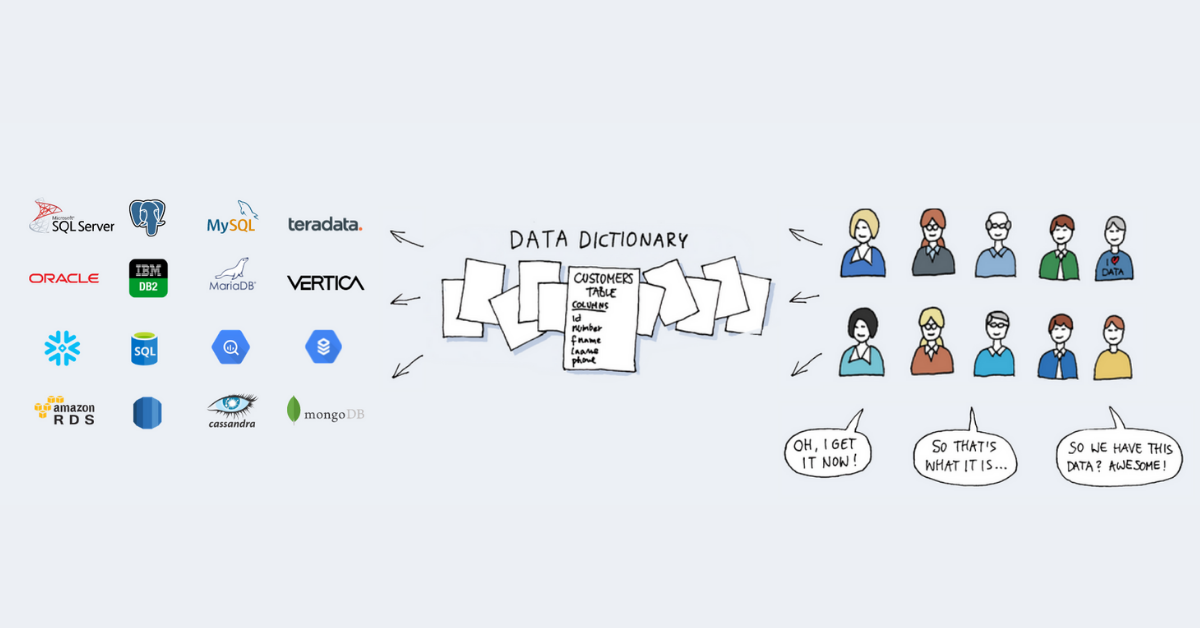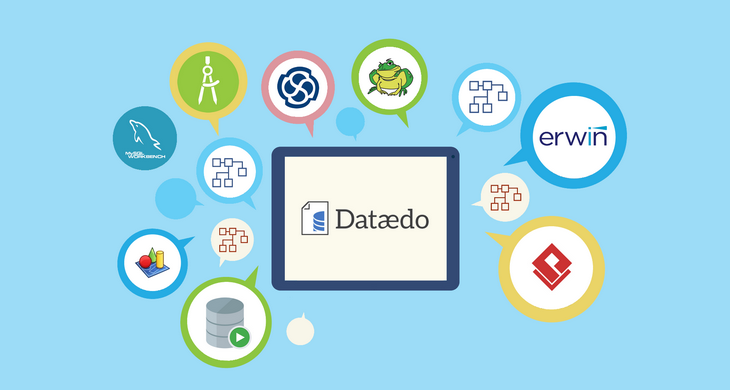I noticed that in some articles and posts people use terms Business Glossary, Data Glossary, and Data Dictionary interchangeably, even though they have distinct meanings. In this article, I want to straighten this confusion up.
What is Data Dictionary?
Data Dictionary is a detailed definition and description of data sets (tables) and their fields (columns). This specification includes information such as data type, size, allowed values, default values, constraints, relations to other data elements and meaning/purpose of data set and field.
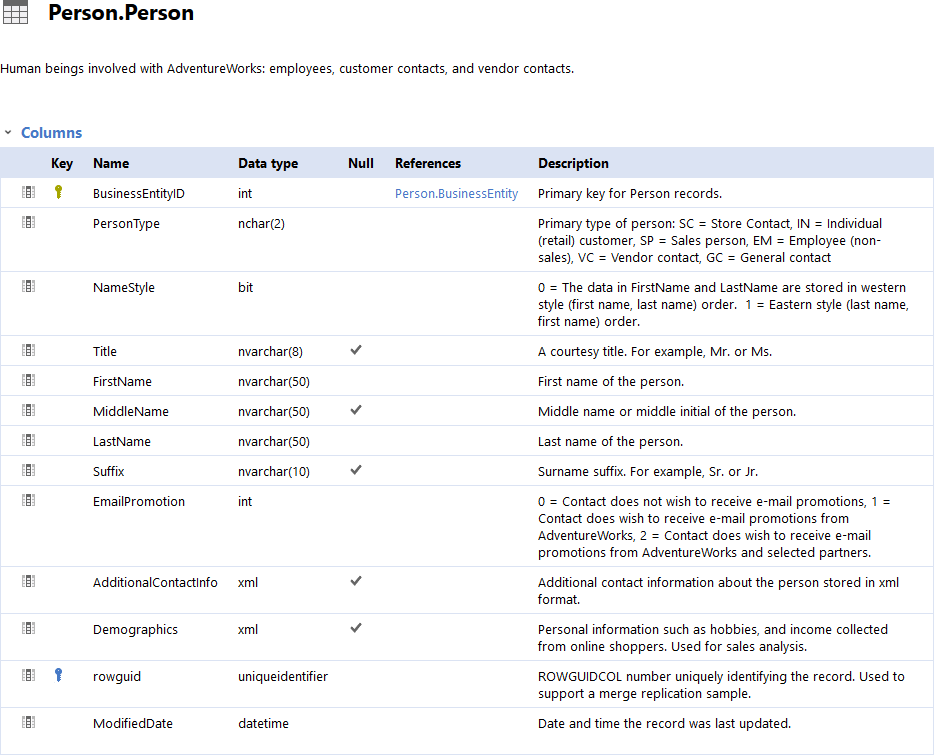 Example of Data Dictionary in Dataedo
Example of Data Dictionary in Dataedo
What is Business Glossary?
Business Glossary, sometimes called Data Glossary, is a list of business terms with their definitions. It defines business concepts for an organization or industry and is independent from any specific database or vendor.
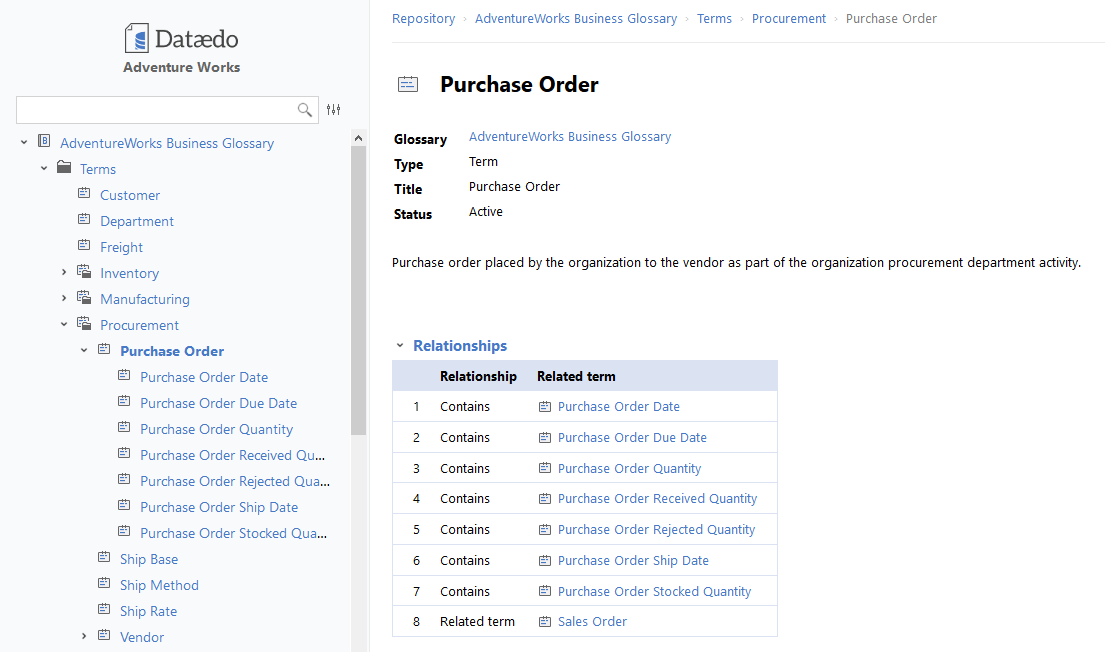 Example of Business Glossary in Dataedo
Example of Business Glossary in Dataedo
What is Data Glossary?
Data Glossary is just another name for Business Glossary.
Therefore:
Business Glossary = Data Glossary <> Data Dictionary
Business Glossary / Data Glossary is a list of business terms and their definitions.
Data Dictionary is a description of a data set or data model.
Let's see a summary of the differences between the two concepts:
The differences
| Data Dictionary | Business Glossary (Data Glossary) | |
|---|---|---|
| Focus on | Physical data assets | Business concepts |
| Key artifact | List of datasets/tables and fields/columns | List of business terms and their definitions |
| Goal | Understand data assets and databases | Define common vocabulary and understanding of basic concepts |
| Owned by | IT | Business |
| Scope | One per data source | One per organization |
| Application | Data modeling, database design, documentation of data sources | Data governance, requirements analysis |
| Example entry | CUST_TAB - table that holds prospects and customers. | “Customer” - An individual or organization that purchased any of our goods or services in the past |
The relationship
Even though Data Dictionary and Business Glossary are separate entities, they work nicely together to describe different aspects and levels of abstraction of the data environment of an organization. Many metadata management/
tools (such as Dataedo) offer the ability to store and link between both of those data assets in one repository.

Business terms can be linked to specific tables and columns in a data dictionary to provide more context and consistent approved definition to different instances of the terms in different databases.
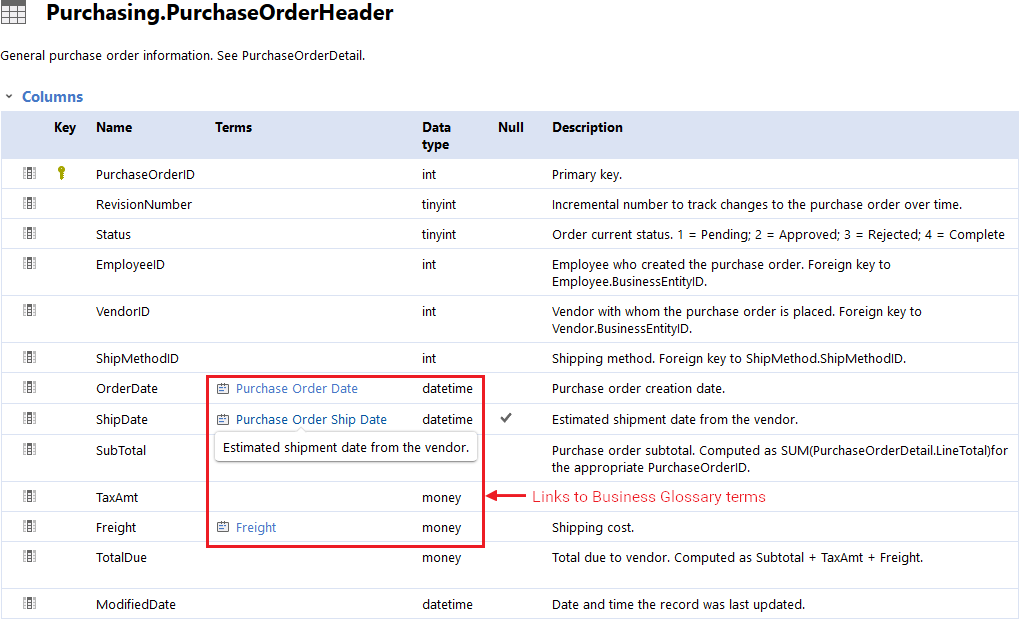 Example of Data Dictionary with links to business terms in Dataedo
Example of Data Dictionary with links to business terms in Dataedo
This gives the following benefits:
- Easy lookup of the data definitions from the data dictionary (so from the context of the database)
- There is one reference definition of a term instead of multiple copies in different tables and columns.
- Business, rather than IT, can own definitions of the business terms.
- It is easier to find similar data in other tables and databases.
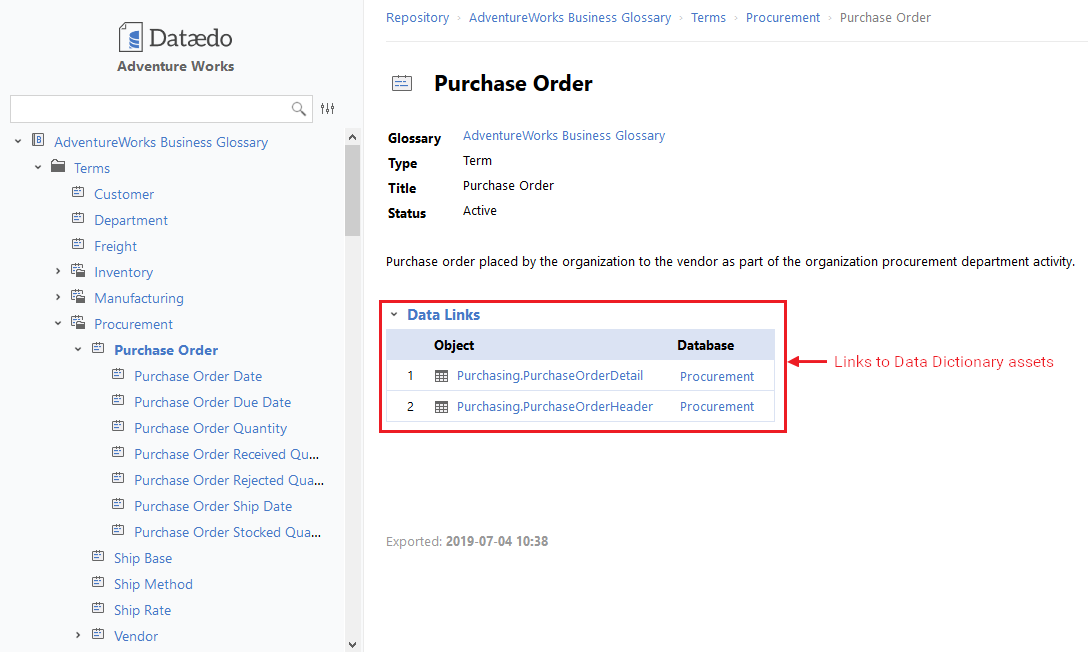 Example of Business Glossary term with links to data assets in Dataedo, data catalog tool
Example of Business Glossary term with links to data assets in Dataedo, data catalog tool
Those links work both ways - from the context of the business term it gives you a quick access to all the instances of the data in all the databases.











 Piotr Kononow
Piotr Kononow


